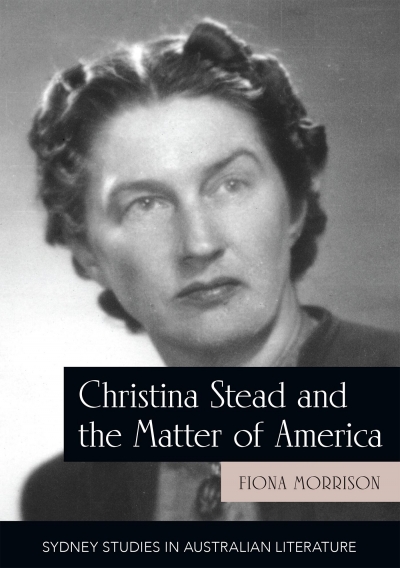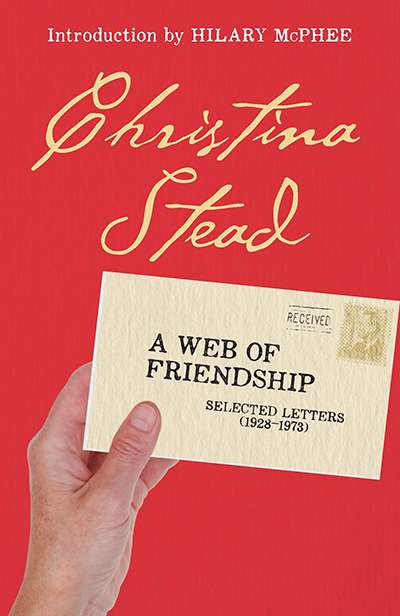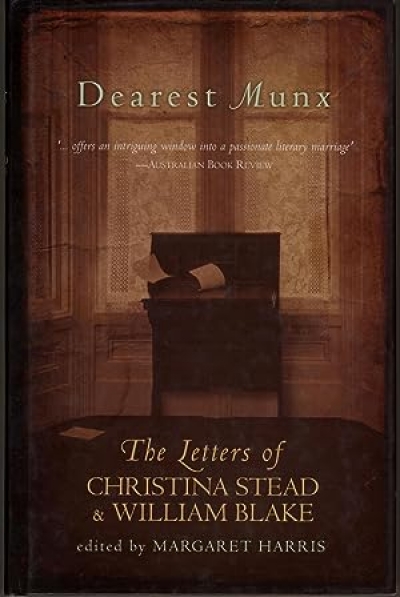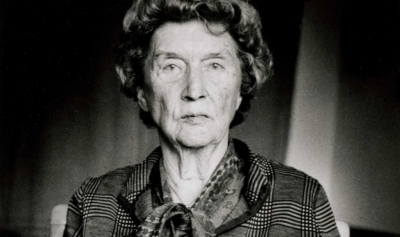Christina Stead
Christina Stead: A web of friendship, selected letters (1928–1973) edited by Ron Geering
Christina Stead is an author perennially ripe for rediscovery. Her acknowledged masterpiece, The Man Who Loved Children, came out originally in 1940; in 2005, it figured in Time’s list of the 100 best novels published since 1923. But in his introduction to the Miegunyah Modern Library edition of the novel, American novelist Jonathan Franzen cites ...
Dearest Munx: The Letters of Christina Stead and William J. Blake by Margaret Harris
I am enmeshed in criticism. Criticism defines and speaks me. I criticise, therefore I have a job. But criticism is a tricky business. It’s partial, changes from one time/place/person to another (as Jennifer Gribble acknowledges).
I’m not an expert on Janet Frame or Christina Stead (although I’ve included books by each on courses in the past) and my awareness of Peter Goldsworthy’s oeuvre is better but patchy. Like most university lecturers (I suppose), I read more reviews than actual books, although my preference is for the reverse. But with the vision of ABR’s editor as the bejewelled ringmistress conjured up in Gina Mercer’s book, I don my cap and bells, cry ‘Nuncle!’, and off I go into the hurricane.
... (read more)Publishers are like invisible ink. Their imprint is in the mysterious appearance of books on shelves. This explains their obsession with crime novels.
To some authors they appear as good fairies, to others the Brothers Grimm. Publishers can be blamed for pages that fall out (Look ma, a self-exploding paperback!), for a book’s non-appearance at a country town called Ulmere. For appearing too early or too late for review. For a book being reviewed badly, and thus its non-appearance – in shops, newspapers and prized shortlistings.
As an author, it’s good therapy to blame someone and there’s nothing more cleansing than to blame a publisher. I know, because I’ve done it myself. A literary absolution feels good the whole day through.
... (read more)Christina Stead was born in Sydney on 17 July 1902 and died there on 31 March 1983. She spent the greater part of her life, including her most creative years, abroad – in England, Europe, and America. She left Australia for the first time in 1928, returning only once for a few months in 1969 before she decided in 1974 to spend her last years here. Although her novels were written away from Australia and most do not have Australian settings, she never ceased to think of herself as an Australian. Nationalism simply wasn’t an issue for her: she didn’t regard herself as an expatriate, she didn’t reject her homeland, but neither did she feel any compulsion to assert an Australian identity. She was perhaps the first Australian writer to be truly cosmopolitan.
... (read more)A few Australian poems from J.J. Stable’s Anthology, A Bond of Poetry (‘The Man from Snowy River’, ‘Clancy of the Overflow’, ‘My Country’), Robbery Under Arms and For the Term of His Natural Life are, to my shame, practically all the Australian literature I can remember reading in my school days. My interest in Australian writers was stirred, really, by two events while an undergraduate at Sydney University. The first was two lectures given by H.M. Green, Fisher Librarian, on Christopher Brennan (an interest reinforced by the first performance at the State Conservatorium of Music in November 1940 of Five Songs – poems of Brennan set to music by Horace Keats). The second was a passing reference by Ian Maxwell in a splendid set of lectures in 1939 on three modem satirists (Butler, Shaw, Huxley) to Christina Stead’s House of All Nations. Maxwell was certainly up to date in his reading, as Christina Stead’s fiction was not at that time widely known in Australia and House of All Nations had been published only the year before. These two events made me realize that Australian writers were part of that great world of English literature which were studied at universities.
... (read more)







